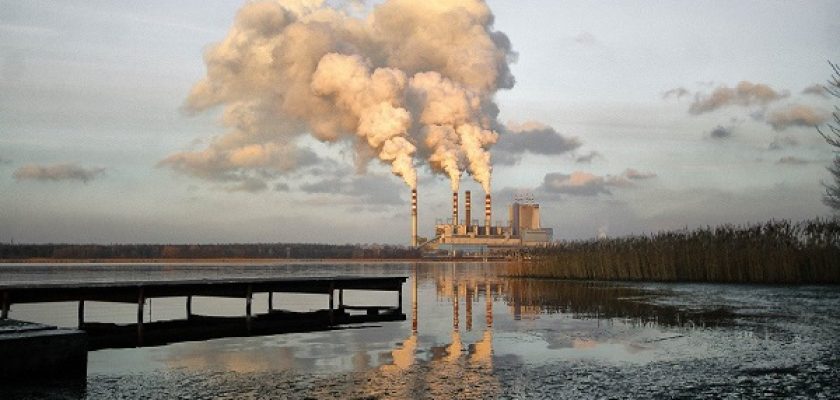Harmful Effects of Coal on Human Health
- Updated on: May 7, 2025
- Published on Jan 21, 2020

Coal contributes significantly to commercial energy production and is widely used in the power industry for electricity generation. However, compared to other fossil fuels, coal has a higher pollution intensity, posing risks to human health, and its energy efficiency is relatively low.
Burning coal releases enormous amounts of harmful pollutants into the air and water, which leads to serious health consequences. Pollutants from coal affect all major body organ systems and contribute toward many leading causes of mortality which include such as heart diseases, cancers, stroke, and chronic lower respiratory diseases.
Each step of the coal lifecycle from mining, transportation, washing, combustion, and disposing of post combustion wastes impacts human health. Coal combustion in particular contributes to diseases like asthma, lung cancer, heart disease, and stroke, compounding the major public health challenges.
Some of the negative health effects of coal that occur through its mining, preparation, combustion, waste storage, and transport are such as:
- Reduction in life expectancy
- Respiratory hospital admissions
- Black lung from coal dust
- Congestive heart failure
- Non-fatal cancer, osteroporosia, ataxia, renal dysfunction
- Chronic bronchitis, asthma attacks, chronic obstructive pulmonary disease (COPD) etc.
- Air and water pollution can cause nervous system damage and IQ loss
- Global warming because of carbon dioxide, methane, nitrous oxide
- Loss of ecosystem and degradation have negative effects on health and quality of life
Coal Combustion Impacts on Human Health
Respiratory Effects
The pollutants produced by coal combustion act on the respiratory system causing a variety of adverse health effects. Air pollutants like nitrous oxide (NO2) adversely affect lung development, reducing forced expiratory volume (FEV) among children. This reduction of FEV, an indication of lung function, often precedes the subsequent development of other pulmonary diseases.
Air pollution triggers attacks of asthma, a respiratory disease affecting more number of children as compared to adults. Children are more susceptible to the development of pollution-related asthma attacks. This may be due to their distinct breathing patterns, as well as how much time they spend outside.
Cardiovascular Effects
The pollutants which are produced by coal combustion also damage the cardiovascular system. The mechanisms by which air pollution causes cardiovascular disease have not been definitively identified but are thought to be the same as those for respiratory diseases: pulmonary inflammation and oxidative stress. The pollutants produced by coal combustion lead to cardiovascular diseases, such as infarct formation (tissue death due to oxygen deprivation, leading to permanent heart damage) and arterial occlusion (artery blockages, leading to heart attacks).
Nervous System Effects
Coal pollution’s health effects also target the nervous system. The same mechanisms that are thought to mediate the effect of air pollutants on coronary arteries also apply to the arteries that nourish the brain. These include stimulation of the inflammatory response and oxidative stress, which in turn can lead to stroke and other cerebral vascular disease.
Coal pollutants act on the nervous system to cause loss of intellectual capacity through mercury. Coal contains trace amounts of mercury that, when burned, affect the environment.
Environmental Effects of Coal Combustion
Air Pollution
Coal combustion releases a number of airborne toxins and pollutants. This includes mercury, lead, sulfur dioxide, nitrogen oxides, particulates, and various other heavy metals. Health impacts can range from asthma and breathing difficulties, to brain damage, heart problems, cancer, neurological disorders, and premature death.
Water Pollution
Coal plants are disposing large amounts of toxic heavy metals like arsenic, selenium, boron, cadmium, mercury, and lead in waterways, polluting the drinking water, fishing areas, and local rivers and streams. Research has shown that exposure to these dangerous chemicals can lead to birth defects, cancer, and even death which means that limiting these pollutants will not only clean up water, but will also save lives.
Global Warming
Coal combustion damages the major systems of the body which includes respiratory, cardiovascular, and nervous systems through pollutants acting directly on the body. But coal combustion also has indirect health effects, through its contribution to greenhouse gas emissions. Global warming is already negatively impacting public health and is predicted to have widespread and severe health consequences in the future. Coal is a major contributor to the predicted health impacts of global warming.
The effects of global warming include increases in global average land and ocean surface temperatures, increases in snow melt and receding glaciers, increases in the mean sea level, and changes in precipitation. These climatic changes are affecting human health globally.
According to the World Health Organization, global warming is responsible for 166,000 deaths in 2000, due to additional mortality from malaria, malnutrition, diarrhea, and drowning.


